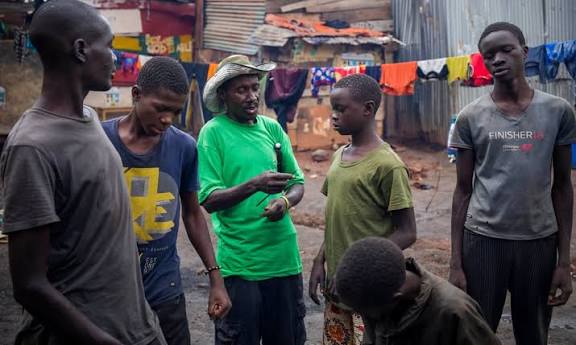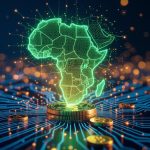In the golden heat of an Arua afternoon, the mango tree behind the community center cast a wide, forgiving shadow. Beneath it, a group of boys sat—some cross-legged, others sprawled out on the dry grass, their school uniforms dusty, their voices low. They watched as girls, their sisters and classmates, streamed into the brightly painted building across the yard.
The community center was a hive of activity. Inside, girls were learning to code, sewing reusable sanitary pads, and attending leadership workshops. The walls were adorned with murals of empowered women and slogans like “Educate a girl, empower a nation.” And rightly so—West Nile had long needed to uplift its girls, to protect them from early marriage, to keep them in school, to give them a voice.
But outside, the boys watched. And waited.
Fourteen-year-old Joel was one of them. He lived in Oli Division with his mother and two younger siblings. His father had died during a border skirmish when Joel was just six. Since then, life had been a quiet struggle. His mother sold cassava and groundnuts in the market, and Joel often skipped school to help her. He was bright—especially in science—but lately, his grades had slipped. He was angry more often. Restless. Alone.
One day, Joel stood at the entrance of the community center. He hesitated, then stepped inside. A volunteer greeted him with a smile.
“Are you here to pick your sister?”
Joel shook his head. “No. I was wondering… is there anything here for boys?”
The volunteer’s smile faltered. “Not really. Most of our programs are for girls. But you’re welcome to wait.”
Joel nodded, turned, and walked back to the mango tree.
That night, under the stars of Arua Hill, Joel wrote a letter. He didn’t know who would read it, but he wrote anyway.
Dear Community Leaders and NGOs, Thank you for helping our sisters. They are strong and deserve every opportunity. But what about us—the boys? We are growing up without fathers, without guidance. We are told to be tough, not to cry, not to ask for help. Some of us are dropping out. Some are joining gangs. Some are just lost. We need help too. We need someone to teach us how to be good men—kind, respectful, responsible. Please don’t forget us._ Joel, Arua
He folded the letter and dropped it into the suggestion box outside the center.
Weeks passed. Then one morning, a new banner appeared on the center’s gate:
“Boys Arising – Mentorship and Life Skills for Young Men in West Nile.”
Joel’s heart skipped.
The first session was held in a borrowed classroom at Mvara Secondary School. Only a handful of boys showed up. The facilitator, Mr. Okumu—a retired teacher from Koboko—welcomed them with a firm handshake and a warm smile. They talked about emotions, peer pressure, respect for women, and the importance of education. They played football, learned how to tie ties, and visited Muni University.
Word spread. More boys joined—from Yumbe, Nebbi, Zombo, and Adjumani. Some came shy and skeptical, others loud and restless. But slowly, they began to open up. They shared their fears, their dreams, their pain. They found brotherhood.
Joel thrived. His grades improved. He restarted the science club at school. He mentored younger boys. And one day, he stood before a room full of district leaders and said:
“When we lift the girl child, we uplift a nation. But when we also lift the boy child, we build a future where both walk side by side—as equals, as allies, as leaders.”
The applause was thunderous.
Now, the community center in Arua welcomes all. The mango tree outside is no longer a place of silence—but of stories, laughter, and hope
Let’s not forget the Joel in every village. Let’s not forget the boys beneath the mango tree. They, too, are dreaming. They, too, are waiting—for someone to believe in them.
This post was created with our nice and easy submission form. Create your post!




